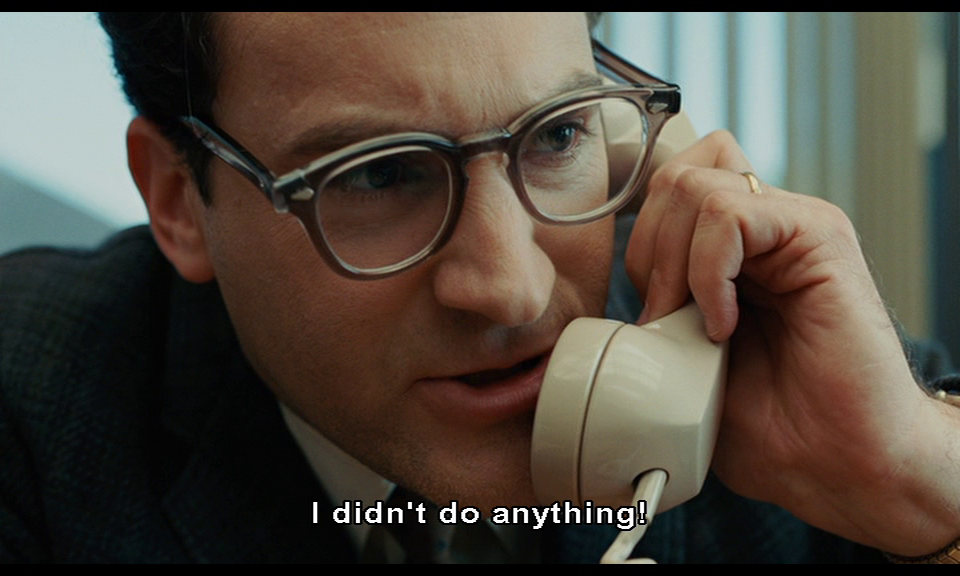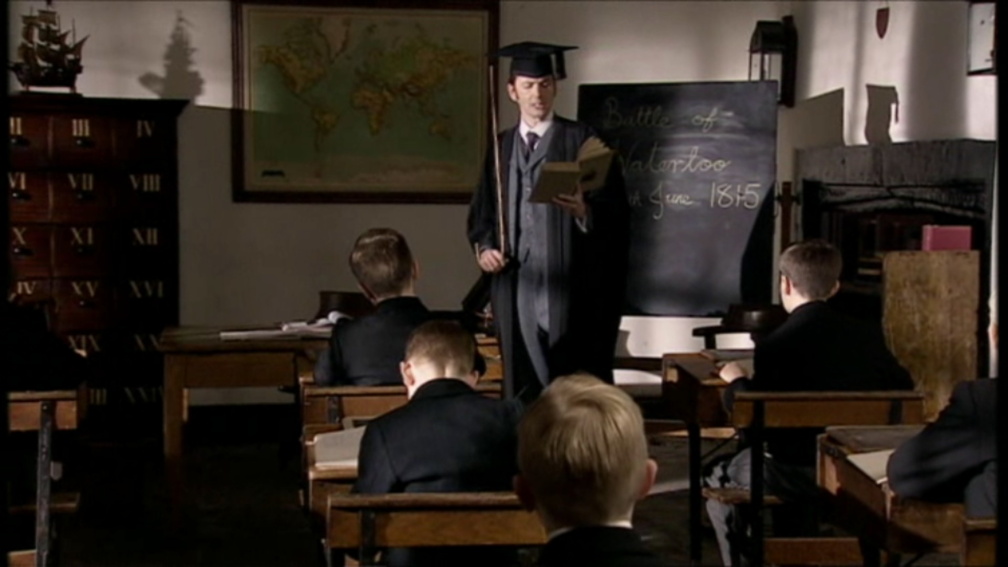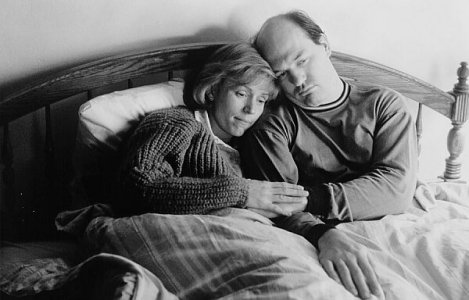Tricky Dicky, Part 4: Of Performity
 Just a reminder: I recently guested (again) on the Oi! Spaceman podcast to talk about ‘Caves of Androzani’. Download here.
Just a reminder: I recently guested (again) on the Oi! Spaceman podcast to talk about ‘Caves of Androzani’. Download here.
What makes an English king ‘bad’? It certainly isn’t starting wars, brutally oppressing peasants and vassals, invading places, or killing and exploiting lots of people. If it were, most of them would be seen as bad, and Edward III (who basically started the Hundred Years War) and Richard I (crusader) wouldn’t have the perennially good reputations they still enjoy. Generally we seem to decide a king is bad if he lost something. We – by which I of course mean ‘someone somewhere’ – seem to have decided that John, Edward II, Richard II and Richard III were the ‘bad’ kings. Losers all. John lost a lot of France, and a lot of his power to his barons, an event marked by Magna Carta. Edward II lost to Robert Bruce at Bannockburn, thus losing control of Scotland, and then lost control of his kingdom to his wife and Roger Mortimer, Earl of March. Richard II was challenged by the peasants’ revolt, and ousted from power twice by his barons, being finally deposed by Henry Bolingbroke, Earl of Lancaster. Richard III, of course, lost at Bosworth Field to Henry Tudor, thus ending the Plantagenet dynasty and inaugurating the rule of the Tudors. It seems that what we don’t like from our kings, above all else, is failure.
Peter Ackroyd once wrote, beautifully, that when a man fails Shakespeare’s sympathy envelopes him… which you can see in almost all Shakespeare’s history plays. Even Shakespeare’s Richard III is allowed flawed introspection and guilt, and even some faint self-awareness, before his final battle, thus lending him tragic dimensions… and then gets his last moments of brazen, daring defiance (the horse remark having been, in my view, seriously misunderstood). But as for history, or rather for those ‘someones somewhere’ who have decided how history is told, generation upon generation, it seems that when a king fails, condemnation envelopes him. The reasons for his defeat, military or political, are then discovered by working backwards. John failed because he was ‘bad’. The flimsiness of his claim to the throne is played up, his apparent murder of a child pretender is paraded as proof of his perfidy, etc… all the way up to becoming a villainous cartoon lion advised by a snake. Edward II failed because he was too fond of his favourites, i.e. men of lesser nobility who exploited their access to him for personal gain, and who antagonised the baronage by cutting them out of the action and insulting them. It’s unclear whether people at the time though Edward was having sexual relationships with his favourites (historians disagree), though this has become the standard popular account since. The probably apocryphal story about the red-hot poker emerged years later, and seems to sadistically imply a fitting end for a sodomite. Marlowe’s play about Edward contains a charge of admiration for the frank love of two men, and Marlowe’s tragic overreacher version of Edward is now favoured in an era when many of us are inclined to sympathise with a man attacked for being gay.…

 As promised, hot on the heels of Shabcast 16,
As promised, hot on the heels of Shabcast 16,  I’m planning to make up for the lack of any Shabcasts in February by providing loads in March, and
I’m planning to make up for the lack of any Shabcasts in February by providing loads in March, and  Spoilers. And, more broadly, the assumption you’ve seen it.
Spoilers. And, more broadly, the assumption you’ve seen it. There are fucking zombies everywhere these days. There are so many fucking zombies around these days that there are things complaining about how many fucking zombies there are around these days everywhere these days. There are so many things complaining about how many fucking zombies there are around these days that we’re on the verge of crossing a kind of things-complaining-about-how-many-fucking-zombies-there-are-around-these-days event horizon, whereupon all the things-complaining-about-how-many-fucking-zombies-there-are-around-these-days will collapse in upon themselves and be crushed to a things-complaining-about-how-many-fucking-zombies-there-are-around-these-days singularity. Or something. Whereupon there will suddenly not be many things-complaining-about-how-many-fucking-zombies-there-are-around-these-days. Or many fucking zombies, for that matter. No more than usual, anyways. No more than before the recession, which is the event which caused the already insane proliferation of zombies to escalate to a kind of meta-proliferation. The zombies will die down. Back to their original, natural level of presence and prominence. The only thing you can be sure of is that The Guardian’s arts/culture opinion writers will notice and announce it as an exciting new development (which they alone have noticed through their unique powers of penetration) exactly three years and eight months after the very last member of the category known as ‘Everyone Else’ already got sick of talking about how there don’t seem to be any zombies around these days.
There are fucking zombies everywhere these days. There are so many fucking zombies around these days that there are things complaining about how many fucking zombies there are around these days everywhere these days. There are so many things complaining about how many fucking zombies there are around these days that we’re on the verge of crossing a kind of things-complaining-about-how-many-fucking-zombies-there-are-around-these-days event horizon, whereupon all the things-complaining-about-how-many-fucking-zombies-there-are-around-these-days will collapse in upon themselves and be crushed to a things-complaining-about-how-many-fucking-zombies-there-are-around-these-days singularity. Or something. Whereupon there will suddenly not be many things-complaining-about-how-many-fucking-zombies-there-are-around-these-days. Or many fucking zombies, for that matter. No more than usual, anyways. No more than before the recession, which is the event which caused the already insane proliferation of zombies to escalate to a kind of meta-proliferation. The zombies will die down. Back to their original, natural level of presence and prominence. The only thing you can be sure of is that The Guardian’s arts/culture opinion writers will notice and announce it as an exciting new development (which they alone have noticed through their unique powers of penetration) exactly three years and eight months after the very last member of the category known as ‘Everyone Else’ already got sick of talking about how there don’t seem to be any zombies around these days. This is actually the third and final part of a series of posts I began in 2012… which is pushing it, even for me.
This is actually the third and final part of a series of posts I began in 2012… which is pushing it, even for me.  Or ‘American History X-Wing’
Or ‘American History X-Wing’ Matt Fraction posted
Matt Fraction posted  Yes, it’s the second part of the trilogy. This time, I just made some notes and gave them to Irvin Kershner to write-up for me. Of course, he’s dead… which might explain why is take is a little darker than mine.
Yes, it’s the second part of the trilogy. This time, I just made some notes and gave them to Irvin Kershner to write-up for me. Of course, he’s dead… which might explain why is take is a little darker than mine. You have to wait two or three years between Star Wars movies. And that’s when a trilogy is under way. At other times you have to wait decades. Hopefully it won’t be that long before the next bit of my even-more-exciting-than-the-films Forward, to the Past! trilogy of posts appears. In the meantime, here’s Shabcast 15, AKA Shabcast L15TEN.
You have to wait two or three years between Star Wars movies. And that’s when a trilogy is under way. At other times you have to wait decades. Hopefully it won’t be that long before the next bit of my even-more-exciting-than-the-films Forward, to the Past! trilogy of posts appears. In the meantime, here’s Shabcast 15, AKA Shabcast L15TEN.